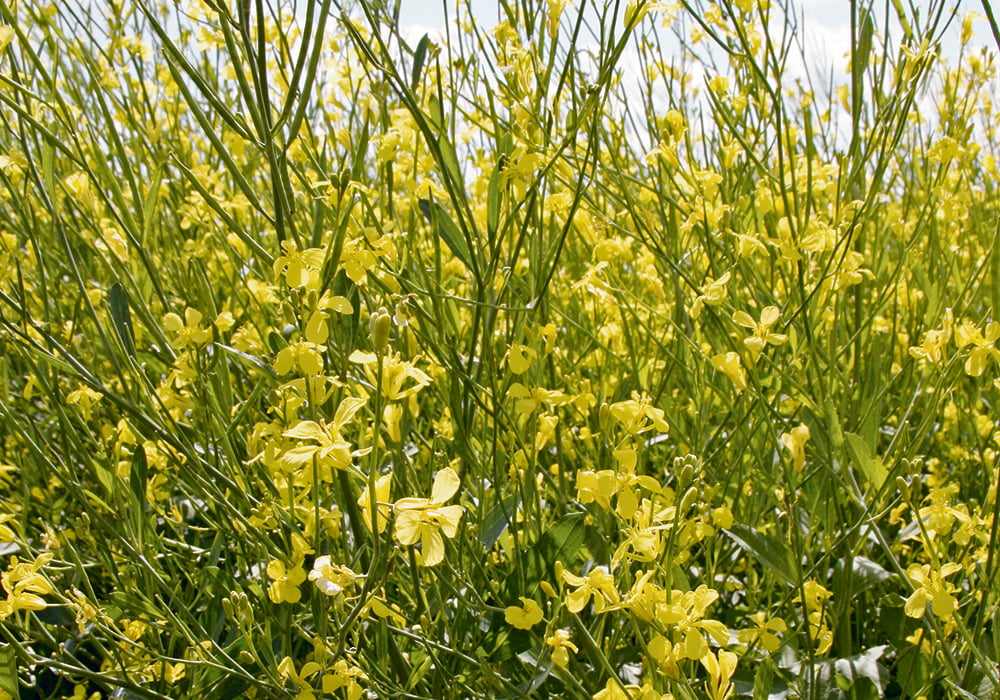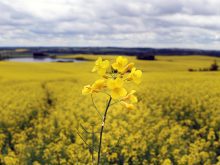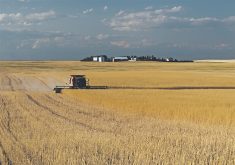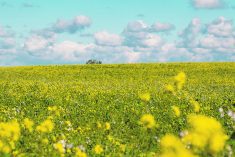Synthetic insecticides are typically used to control mosquito larvae, but a natural option could have advantages
American scientists have learned that mustard is versatile.
The yellow condiment can flavour a ham sandwich and it looks great on a hot dog.
It can also control mosquitoes.
Earlier this year, United States Department of Agriculture scientists reported that chemicals in mustard seeds are effective for killing mosquito larvae.
“This is the first report evaluating the efficacy of five Brassicaceae (mustard family) seed meals… against mosquito larvae,” said the study, published in Scientific Reports.
“(This) demonstrates how natural compounds from Brassicaceae seed meals can serve as a promising eco-friendly larvicide to control mosquitoes.”
Read Also

Canadian Food Inspection Agency extends chronic wasting disease control program consultation deadline
Date extended for consultation period of changes to CWD program
In early September, the USDA explained how mustard can kill the larvae before they become mosquitoes.
Larvae is the second stage of a mosquito’s life, following the egg stage.
The larvae, sometimes called wrigglers, thrive in still or swampy pools of water. Killing the larvae in spring can prevent an explosion of adult mosquitoes in summer.
Synthetic insecticides are now used to control larvae but having a natural option could be helpful. It may be less harmful to the environment and could slow the resistance to commercial insecticides, the USDA said.
Scientists from a USDA lab in Illinois studied a group of chemicals in mustard called isothiocyanates, some of which give mustard its bitter and spicy flavour.
Those chemicals are released when mustard seed meals are soaked in water, the USDA said.
“The mustard plant stores inactive defence compounds (glucosinolates) in the seed that can be converted into biologically active isothiocyanates by enzymes,” said William Hay, a USDA researcher in Peoria, Illinois.
The results of lab tests were encouraging, as the researchers found that all seed meals were toxic to mosquito larvae.
More studies are required, but early results are encouraging because the mosquito-controlling chemicals in mustard are cheap to produce.
“(It) points to a promising bio-based alternative… that can be derived from an inexpensive agricultural byproduct of processing mustard seed into oil and spices,” the USDA said.
Canadian researchers and companies have also explored the potential of mustard to control pests. But much of the focus has been on crop pests.
MustGrow Biologics, a Saskatoon company, has developed a biopesticide that shows promise to control soil-borne diseases like clubroot and aphanomyces root rot.
Clubroot is a disease of canola and aphanomyces has become a major problem for pea and lentil growers. There is no treatment for it, except waiting six to eight years between growing peas or lentils on an infected field.
MustGrow has developed a formulation for broad acre crops, called TerraMG.
In August, MustGrow provided an update on the commercialization of TerraMG and other products.
“We are seeing great success in our trials in Canada, Europe, the Americas, and other locations,” MustGrow said in a release.
“The registration stage takes time as government agencies from around the world… learn more about our technology and its effects on humans and the environment. Once we do have registrations though, we will be ready for commercialization.”
















